

Overview
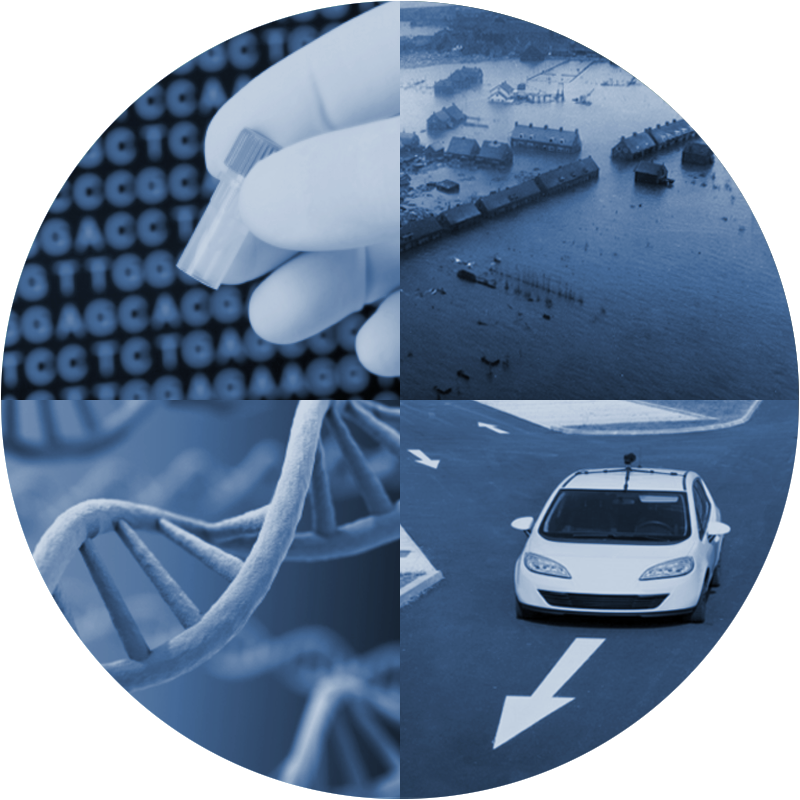

Together with the Department of Science, Technology, Engineering and Public Policy at University College London (UCL STEaPP), IRGC organised an international conference on Planning Adaptive Risk Regulation, which took place at UCL, London UK, 7 – 8 January 2016.
Over two days, the conference convened participants from academia, regulatory agencies and industry to discuss experiences, challenges and ways to improve regulation related to new scientific developments and technologies. Speakers compared and contrasted past and current cases and potential for planned adaptive regulation in the fields of fuel economy standards, hydraulic fracturing, flood risk governance, autonomous vehicles, synthetic biology and precision medicine.
The audience of this conference included practitioners of risk governance and regulation from academia, the private and public sectors.
Presentation decks are available for download under ‘Agenda’, by clicking on the respective presentation title.
The Conference report can be downloaded here. It summarises each session and concludes with the key themes related to Planned Adaptive Regulation.
Downloads
Conference report (pdf)
Full conference programme (pdf)
A short introduction to Planned Adaptive Risk Regulation (pdf)
Agenda
Day 1 – Thursday 7 January 2016
08:30 Registration opens
09:00 – 10:30 Session 1.1: Introduction
How can regulation keep up with technological and societal development? Taking this ‘pacing problem’ as the starting point, this session will introduce the purpose, objective and characteristics of Planned Adaptive Regulation for risk matters. Adaptive approaches aim to address the uncertainty, ambiguity and sometimes controversy that often characterises both scientific and technological development on which policies and regulation need to rely, and changing context conditions, including with regards to values and opinions.
- Welcome from University College London
Jason Blackstock, Department of Science, Technology, Engineering and Public Policy (STEaPP), University College London - Welcome from IRGC
Philippe Gillet, École Polytechnique Fédérale de Lausanne; IRGC Foundation Board - Considerations in the design of adaptive policies
Granger Morgan, Department of Engineering and Public Policy, Carnegie Mellon University; IRGC Scientific & Technical Council (S&TC) - What is planned adaptive regulation?
Arthur Petersen, UCL STEaPP; IRGC S&TC - What happens if regulation is not adaptive?
Anne Glover, University of Aberdeen, former Chief Scientific Adviser to the President of the European Commission
10:30 – 11:00 Coffee break
11:00 – 12:30 Session 1.2: Adaptive Regulation – An overview of past and current experiences
This session will review examples of current regulations in which planned adaptation is built in, such as US and EU air quality regulation, or in transportation, and will discuss where planned adaptation could be included, such as in hydraulic fracturing. Past successes and failures will thus be discussed to address the challenges designing and implementing planned adaptive regulation.
Facilitation: John Graham, Indiana University
- Fuel-economy/carbon standards for motor vehicles
John Graham, School of Public and Environmental Affairs, Indiana University; IRGC S&TC - Planned adaptation in retrospect – Lessons from exemplary cases and cautionary tales
Kenneth Oye, Program on Emerging Technologies, Massachusetts Institute of Technology; IRGC S&TC - Adaptive risk regulation and fracking in Europe
David Reiner, University of Cambridge - Commentaries: Ragnar Löfstedt, King’s Centre for Risk Management, King’s College London
12:30 – 13:30 Lunch break
13:30 – 15:00 Session 1.3: Adaptive flood risk governance
Many factors influence the risk and impact of flooding. Besides physical factors (e.g., landscape design, climate change) also socio-economic factors (e.g., population, assets) are important. Given that these factors change and feature complex and uncertain behaviour in past and future, the design and regulation of the critical infrastructure of dykes and other primary water defence works will have to be flexible enough to be able to deal with such changes. In this session we will feature the Dutch Delta Programme which issued a new Delta Plan (the nation’s 2nd, 50 years after the 1st) that explicitly includes “Adaptive Delta Management” as an integral part. The basic philosophy behind Adaptive Delta Management is to choose strategies and measures that can give flexibility in the way to respond to new knowledge, by stepping up efforts if necessary or changing strategy, while already having everything at hand. The session will compare the Dutch approach with experiences elsewhere in decision-making under uncertainty for projects on flood risk management. Major questions to be tackled are: (i) how to deal with surprises in the knowledge base?, and (ii) how to manage stakeholder perceptions and participation in Planned Adaptive Risk Regulation practices?
Co-organised with: Dutch Delta Programme
Facilitation: Arthur Petersen, University College London
- Introduction
Arthur Petersen, Department of Science, Technology, Engineering and Public Policy, UCL; IRGC S&TC - Dutch adaptive delta management
Pieter Bloemen, Dutch Delta Commissioner - Informing adaptive management – Innovations and challenges
Robert Lempert, RAND Corporation - Adapting to scientific information – An insurance perspective
Trevor Maynard, Lloyd’s
15:00 – 15:30 Coffee break
15:30 – 17:30 Session 1.4: Adaptive regulation for the development of autonomous car markets
Most risks involved in car driving will change with the advent of autonomous cars. Engineers, scientists and car manufacturers have developed technologies that enable personal vehicles to drive fully autonomously, but there are a number of uncertainties that need to be resolved (including issues of standards and interoperability, public acceptance, cyber security or liability in case of accident). Risks and their management are being re-evaluated, notably by modelling the driving behaviour or the car, to enable accurate qualitative and quantitative assessment, and by addressing liability concerns that may otherwise slow or even prevent consumer access to advanced autonomous vehicle technology. The revision of vehicle regulation will require strong collaboration between regulators, insurance companies, car manufacturers and software companies, and an incremental approach that will allow progressive adaptation of the regulation to the emerging autonomous vehicle technologies, as well as to the outcome of ex-post regulatory impact assessments that collect and integrate feedback from evidence (accident and incident databases) into planned revisions. The session will discuss how new regulatory frameworks can progressively be designed for fully autonomous cars. EC regulation routinely uses post-impact assessment. It identifies actual impacts during and after implementation, to enable corrective action to be taken if necessary, and to provide information for improving the design of future interventions.
Co-organised with: Sustainable Transport Division, World Forum for Harmonization of Vehicle Regulations, United Nations Economic Commission for Europe
Facilitation: Jonathan Wiener, Duke University
- Adaptive approaches to vehicle regulation
Walter Nissler, Vehicle Regulations and Transport Innovations Section, Transport Division, United Nations Economic Commission for Europe (UNECE) - Views from the UK regulator
Ian Yarnold, International Vehicle Standards Division, UK Department for Transport - Informing regulations for autonomous vehicle technologies
Nidhi Kalra, RAND Corporation - Insurance perspectives on automated vehicles
Sebastiaan Bongers, Swiss Re
Day 2 – Friday 8 January 2016
9:00 – 10:30 Session 2.1: Adaptive risk governance in synthetic biology
In the past five years, the field of synthetic biology has been developing at an extraordinary pace. Exponential declines in the cost of DNA sequencing have led to exponential increases in the quantity and quality of information in genetic data bases, while exponential declines in the cost of DNA synthesis and the development of powerful new tools for gene editing such as CRISPR Cas-9 have facilitated the development of industrial, agricultural and environmental applications of synthetic biology. The session will discuss:
- Benefits and risks associated with applications of synthetic biology, including synthesis of fuels, flavors and drugs in contained settings, the development and release of genetically modified plants and animals, with applications to agriculture and to modification of wild populations
- Proposed technical measures that may mitigate risks and methods for the evaluation and certification of technical measures
- Policy issues associated with risk regulation including EU reforms and US revisions of the Coordinated Framework.
Regulation is often viewed as the preferred or default option for minimizing the risks and uncertainties associated with rapidly emerging technologies such as synthetic biology. The evolving nature and special characteristics of synthetic biology suggest the need for an “expanded toolkit” beyond regulation to promote adaptive governance and to better tailor appropriate measures to specific situations. This includes not only legal liability regimes, insurance, soft law mechanisms, ‘regulation by contract’, and standards but also integrating risk-based issues and gaps with less familiar tools such as technical roadmaps, research consortia agendas, and innovative business models incorporating ‘adaptive advantage’.
Co-organised with: OECD Working Party on bio-nano-converging technology (WP BNCT)
Facilitation: Kenneth Oye, MIT
- Introduction
Jim Philp, OECD - Synthetic biology: Emerging applications and regulatory challenges
Kenneth Oye; Program on Emerging Technologies, Massachusetts Institute of Technology; IRGC S&TC - Scientific opinions on synthetic biology in the EU
Theo Vermeire, Dutch National Institute of Public Health and the Environment and SCENIHR - Views from industry
Neil Goldsmith, Evolva - Commentaries: Richard Kitney, Imperial College London
10:30 – 11:00 Coffee break
11:00 – 12:30 Session 2.2: Adaptive risk governance in precision medicine
This session will discuss issues associated with the governance of opportunities and risks of precision medicine. The term ‘precision medicine’ is used with reference to two broad areas of application:
- Conventional pharmaceuticals are being used in increasingly discriminating ways, with genotypic and phenotypic information on efficacy, safety and effectiveness of drugs and advanced diagnostic tests on patients, which are used to focus treatments on smaller subgroups of patients
- Unconventional regenerative medicines and somatic gene therapies are developed and administered to genetically defined treatment groups, with some therapies based on modifications of cells extracted from individual patients.
Development, regulation and payment/reimbursement for precision medicines, defined in both senses, pose challenges to conventional methods of governing benefits and risks. The session will discuss the many governance issues associated with precision medicine, including that:
- Conventional methods of governing benefits and risk to very small treatment groups are challenged
- One central element of precision medicine, that is the need to collect and integrate large sets of data, including genetic, health and environment (life-styles) may cause problems of data ownership, access and use.
This session will build on the results of an expert workshop organised by IRGC in August 2015, with partners and participants from, among others, Tsinghua University, MIT and École Polytechnique Fédérale de Lausanne (EPFL) (see “highlights from the workshop” on www.irgc.org/events). It will consider additional elements, including EMA pilots on adaptive licensing / MAPPS; evolving standards for data ownership and subject consent; and analytic methods for combining interventional trials and observational studies to improve risk management.
Facilitation: Lan Xue, Tsinghua University
- Introduction to the revolution of precision medicine
Gérard Escher, École Polytechnique Fédérale de Lausanne; IRGC S&TC - Precision medicine – An overview of changing technologies and regulatory challenges
Kenneth Oye, Program on Emerging Technologies, Massachusetts Institute of Technology; IRGC S&TC - Governance debate and policy agenda – The situation in China
Lan Xue, School of Public Policy and Management, Tsinghua University; IRGC S&TC - Genomic research and precision medicine
Jacques Fellay, École Polytechnique Fédérale de Lausanne - Regulatory challenges of bringing precision medicine to patients
Hans-Georg Eichler, European Medicines Agency
12:30 – 13:30 Lunch break
13:30 – 15:00 Session 2.3: Conclusion – Cross-cutting themes
The concluding session will discuss how the learning process is organised, issues of data and information access and sharing between industry and regulators, stakeholders’ views on adaptive regulation, and problems of business uncertainty if regulation is not steady.
Facilitation: Arthur Petersen, UCL
- Reto Schneider, Swiss Re
- Jonathan Wiener, Duke University
- Anne Glover, University of Aberdeen
- Jason Blackstock, University College London
A conference report will be prepared by Michael Veale (University College London), Daniel Ribeiro (Duke University) and Dr Mihalis Kritikos (Science and Technology Options Assessment, European Parliament).
The conference report and presentation slides will be published on the conference website after the event.
Speakers
Session 1.1: Introduction
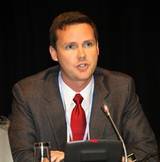

Head of Department and Senior Lecturer in Science and Global Affairs, Department of Science, Technology, Engineering and Public Policy (STEaPP), University College London
With a unique background spanning research physics, Silicon Valley technology development, public policy, and global governance, Jason is an internationally respected scholar, educator and policy adviser on the interface between science and public decision-making. Jason joined University College London in 2013 to help establish the Department of Science, Technology, Engineering and Public Policy (UCL STEaPP). As Head of this innovative new department, Jason is leading the strategic development of STEaPP’s rapidly expanding research, education and policy engagement programmes, all aimed at delivering on STEaPP’s socially-oriented mission to explore, experiment with, and improve the mobilisation of scientific and engineering knowledge in support of better public decision-making around the World. Prior to joining UCL, Jason taught and directed policy-engaged research at leading universities and think tanks, including Harvard, Oxford, the Centre for International Governance Innovation (Canada), and the International Institute for Applied Systems Analysis (Austria). For the past seven years, Jason’s scholarly and policy work has focused on the complex interactions between the scientific, political and global governance dimensions of our planetary climate and energy challenges. Jason obtained his BA in English Literature (Queen’s, 2000) and his Masters and PhD in physics (Edinburgh, 2001; Alberta, 2005), followed by a Graduate Certificate in International Security (Stanford, 2006) and Master of Public Administration (Harvard, 2008).


Professor and Vice-President for Academic Affairs, École Polytechnique Fédérale de Lausanne;
Chair, IRGC Foundation Board
Philippe Gillet is Vice-president for Academic Affairs and Full Professor at Ecole Polytechnique Fédérale de Lausanne, Switzerland, since April 2010. He graduated from Ecole Normale Supérieure de Paris (Ulm) and obtained his PhD in Geophysics and Geochemistry at Université de Paris VII. He was Director of the Institut des Sciences de l’Univers at CNRS, as well as Director of the Ecole Normale Supérieure at Lyon. Before joining EPFL, he was the Chief of Staff of the French Minister of Higher Educationand Research.


Hamerschlag Professor of Engineering, Carnegie Mellon University; Chair, IRGC Scientific & Technical Council
Granger Morgan is the Hamerschlag Professor of Engineering at Carnegie Mellon University. He holds appointments in three academic units: the Department of Engineering and Public Policy; the Department of Electrical and Computer Engineering; and the H. John Heinz III College. His research addresses problems in science, technology and public policy with a particular focus on energy, environmental systems, climate change, the adoption of new technologies, and risk analysis. Much of his work has involved the development and demonstration of methods to characterize and treat uncertainty in quantitative policy analysis. In the past, he served as Chair of the Science Advisory Board of the U.S. Environmental Protection Agency and as Chair of the Advisory Council of the Electric Power Research Institute, of which he is a member. At the NAS, he has chaired or been a member of various committees. He currently co-chairs the Resilient America Round Table. He is a Member of the National Academy of Sciences, and a Fellow of the AAAS, the IEEE, and the Society for Risk Analysis. He holds a BA from Harvard College (1963), an MS in Astronomy and Space Science from Cornell (1965) and a Ph.D. from the Department of Applied Physics and Information Sciences at the University of California at San Diego (1969).


Professor of Science, Technology and Public Policy, University College London; IRGC Scientific & Technical Council
Arthur Petersen is Professor of Science, Technology and Public Policy at University College London (UCL), UK. Before he joined UCL’s new Department of Science, Technology, Engineering and Public Policy (STEaPP) in September 2014, he had worked for more than 13 years as scientific adviser on environment and infrastructure policy within the Dutch Government. From 2011 until 2014 he served as Chief Scientist of the PBL Netherlands Environmental Assessment Agency. He is also Adjunct Professor of Science and Environmental Public Policy at the VU University Amsterdam (since 2011) and Research Affiliate at the Massachusetts Institute of Technology (since 2009), and has been Visiting Professor at the London School of Economics and Political Science (2009–2014) and at UCL STEaPP (January–August 2014). He studied physics and philosophy, obtained PhD degrees in atmospheric sciences and philosophy of science, and now also finds disciplinary homes in anthropology and political science. Most of his research is about managing uncertainty.


Vice-Principal External Affairs & Dean for Europe, University of Aberdeen
Anne has pursued a career in scientific research at Aberdeen University and her research has been varied including studying how proteins are directed to the correct location within our cells, the diversity and function of the microbial population in soil, the development of biological sensors to detect environmental pollution and more recently, how we respond to stress at the molecular level. In 2008 she was made a Woman of Outstanding Achievement in Science, Engineering and Technology (SET) and has worked hard to raise the profile of women in SET and to ensure that not only are women are recruited into careers in SET but that they are supported to remain in the profession during their careers. Anne was the first Chief Scientific Adviser to the President of the European Commission (2012-2015). Prior to that, she was the first Chief Scientific Adviser for Scotland (2006-2011). In both positions Anne transformed the way science, engineering and technology were used and discussed within government and developed strategic initiatives to bridge the gap between science and policy. She is currently Vice Principal for External Affairs and Dean for Europe at the University of Aberdeen. Professor Glover became a Dame Commander of the Order of the British Empire (DBE) for services to Science in the UK and Europe in the 2015 Queen’s Birthday Honours List. Anne has a BSc in Biochemistry from Edinburgh and a PhD in Molecular Microbiology from Cambridge.
Session 1.2: Adaptive Regulation – An overview of past and current experiences


Dean, School of Public and Environmental Affairs, Indiana University; IRGC Scientific & Technical Council
Since August 2008, Dr John Graham is Dean of the Indiana University School of Public and Environmental Affairs. From 2006 to 2008, he was Dean of the Frederick S. Pardee RAND Graduate School, where he was also conducting research as the holder of a newly created chair in policy analysis. From 2001 to 2006, he served President George W. Bush as Administrator, Office of Information and Regulatory Affairs, Office of Management and Budget. His responsibilities included coordination of regulatory review, paperwork reduction, statistical policy and information policy in the Federal government. Prior to joining the Bush Administration, Dr Graham founded and led the Harvard Center for Risk Analysis from 1990 to 2001. At Harvard, Dr Graham was a member of the faculty of the Harvard School of Public Health, where he taught graduate students the methods of risk analysis and cost-benefit analysis. Dr Graham earned his BA from Wake Forest University, his MA from Duke University and his Ph.D. from Carnegie Mellon University. He served as a pre-doctoral fellow at the Brookings Institution and as a post-doctoral fellow at the Harvard School of Public Health. Dr Graham has written seven books and more than 100 scientific articles and is best known for his scholarship on automotive safety and environmental policy.


Director, MIT Program on Emerging Technologies; IRGC Scientific & Technical Council
Kenneth A. Oye is Director of the MIT Program on Emerging Technologies, with a joint appointment as Associate Professor of Political Science and Engineering Systems. His research and teaching integrate international relations and technology policy, with emphasis on proactive and adaptive management of risks in areas characterized by uncertainty, complexity and controversy. As Director of Policy and Practices of the NSF Synthetic Biology Engineering Research Center (Synberc), he works on governance of environmental, safety and security risks of synthetic biology. As a faculty affiliate of the MIT Center for Biomedical Innovation, he works with EMA, FDA, Health Canada, pharmaceutical firms, and payers on adaptive approaches to pharmaceuticals licensing. His work on technology policy has been published in Nature, Science, Clinical Pharmacology and Therapeutics, Technology Forecasting and Social Change, Politics and the Life Sciences and Issues in Science and Technology. In the past three years, he has served as an invited expert to the UN Biological Weapons Convention, the US President’s Council of Advisors on Science and Technology Committee on Innovation in Pharmaceuticals, the WHO consultation on Dual Use Research of Concern, the US National Institutes of Health National Science Advisory Board on Biosecurity (NIH NSABB) and the National Research Council Life Sciences Board. He received his BA in Economics and Political Science from Swarthmore College with Highest Honors and his Ph.D. in political science from Harvard University with the Chase Dissertation Prize.
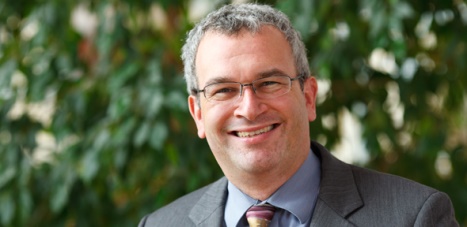

Senior Lecturer in Technology Policy, Judge Business School, University of Cambridge
David Reiner is University Senior Lecturer in Technology Policy at Judge Business School, University of Cambridge and Assistant Director of the Energy Policy Research Group (EPRG) at Cambridge. Current research activities include studies on the role of low-carbon demonstration projects, the economics and politics of unconventional oil and gas, including focus groups in the UK, Romania, Bulgaria and Poland and a citizens’ jury in the UK, public communication of contested geoscience, an annual nationally representative survey in the UK on energy and environmental issues, and the politics of switching energy provider suppliers. He leads the public engagement component of the ReFINE project (Research into Fracking IN Europe) and is involved in Working Group 2 within the European Commission’s Unconventional Hydrocarbon Network. David is the member of the coordination group of the UK CCS Research Centre (UKCCSRC) responsible for policy, economics and finance. He is a member of the UK-China (Guangdong) CCUS Project, the EU’s Zero Emission Power technology platform Task Force on Public Communications, and the steering committee of the International Energy Agency Greenhouse Gas Programme’s Social Research Network.


Professor of Risk Management and Director of King’s Centre of Risk Management, King’s College London
Ragnar E. Lofstedt is Professor of Risk Management and the Director of King’s Centre of Risk Management, King’s College London, UK where he teaches and conducts research on risk communication and management. Previously he was a Reader in Social Geography at the University of Surrey, UK. He is also an Instructor at the Harvard Center for Risk Analysis, Harvard School of Public Health where he directs the Risk Communication Challenge Course for continuing education professionals. He is Adjunct Professor at the Department of Engineering and Public Policy, Carnegie Mellon University, and he is a Visiting Professor at the Centre for Public Sector Research, Gothenburg University, Sweden. He has conducted research in risk communication and management in such areas as renewable energy policy, food safety issues, pharmaceutical recalls, telecommunications, biosafety, and the siting of building of incinerators, nuclear waste installations and railways. He is a believer in the building of public trust in regulators and industry via proactive risk communication and argues that high regulatory/industry trust is equivalent to low public perceived risk. Prof. Lofstedt is the author/editor of ten books and over 90 peer reviewed articles, is the editor-in-chief for Journal of Risk Research, editor of the Earthscan publications’ Risk, Society and Policy book series, and is on the editorial boards of Journal of Health Communication, International Journal of Risk Assessment and Management, and Risk Management.
Session 1.3: Adaptive flood risk governance


Pieter Bloemen
Chief Strategic Officer, Dutch Delta Program
Mr. Bloemen is the Chief Strategic Officer of the Dutch Delta Program and responsible for the development and application of Adaptive Delta Management and the Comparison Scheme, for the Strategic Environmental Assessment of the Delta-decisions and preferred strategies proposed in Delta Program 2015, and for the development of the monitoring and evaluation system. He was the program leader of the National Program on Climate Adaptation and Spatial Planning (ARK Program) that developed the first National Adaptation Strategy of the Netherlands in 2007. He was advisor spatial planning and climate adaptation to His Royal Highness Willem Alexander and member of the quarter-making team of the Delta Program. Before joining the national government in 2000 he worked, from 1986 onward, at the international consultancy company IWACO. At IWACO he worked three years in West Africa (geophysics for urban and rural water supply). In the Netherlands he worked on soil remediation, groundwater modeling, environmental impact assessment and mediation, and was head of the department of Water and Spatial Planning in Rotterdam. Mr. Bloemen graduated cum laude as hydro-geologist from the Free University of Amsterdam in 1986, and holds a bachelor degree in geophysics (G4) from the University of Utrecht. He is part-time visiting Researcher at Unesco-IHE in Delft (Chair Group Flood Resilience) since January 2015.


Director, Frederick S. Pardee Center for Longer Range Global Policy and the Future Human Condition, RAND Corporation
Robert Lempert is a senior scientist at the RAND Corporation and Director of the Frederick S. Pardee Center for Longer Range Global Policy and the Future Human Condition. His research focuses on risk management and decision-making under conditions of deep uncertainty, with an emphasis on climate change, energy, and the environment. His research group assists agencies including the U.S. Bureau of Reclamation, the California Department of Water Resources, the Metropolitan Water District of Southern California, the US Environmental Protection Agency, and the World Bank incorporate climate change in their resource management plans. He is a co-PI of the NSF-funded Sustainable Climate Risk Management Network (SCRiM). Dr. Lempert is a Fellow of the American Physical Society, a member of the Council on Foreign Relations, a lead author for Working Group II of the Intergovernmental Panel on Climate Change (IPCC) Fifth Assessment Report, and a member of numerous study panels for the U.S. National Academies. Dr. Lempert was the Inaugural EADS Distinguished Visitor in Energy and Environment at the American Academy in Berlin. A Professor of Policy Analysis in the Pardee RAND Graduate School, Dr. Lempert is an author of the book Shaping the Next One Hundred Years: New Methods for Quantitative, Longer-Term Policy Analysis.


Head of Exposure Management and Reinsurance, Lloyd’s
Trevor Maynard is Head of Exposure Management and Reinsurance at Lloyd’s of London. He is responsible for overseeing the aggregation of manmade and natural catastrophe risk in the Lloyd’s market including earthquakes, hurricanes and floods. His role also includes responsibility for horizon scanning for emerging risks in the insurance market, publications include the topics of: Climate change, Water risk, Food security and man-made threats. Trevor is co-chairman of the open modelling platform OASIS and a board member of the Lighthill Risk Network which aims to encourage the flow of information from academia to insurers. He is a Fellow of the Institute and Faculty of Actuaries and has degrees in Pure Mathematics.
Session 1.4: Adaptive regulation for the development of autonomous car markets


Perkins Professor of Law, Duke University; IRGC Scientific & Technical Council
Jonathan B. Wiener is the Perkins Professor of Law, and professor of environmental policy and public policy, at Duke University. He is Co-Director of the ‘Rethinking Regulation’ program at Duke. He is a University Fellow of Resources for the Future (RFF), and a member of the Climate Economics Chair (CEC) in Paris. His publications include Risk vs. Risk (Harvard University Press, 1995, with John Graham); Reconstructing Climate Policy (AEI Press, 2003, with Richard Stewart); The Reality of Precaution: Comparing Risk Regulation in the United States and Europe (RFF Press/Earthscan/Routledge, 2011, with Rogers, Hammitt and Sand); and Policy Shock: Regulatory Responses to Oil Spills, Nuclear Accidents, and Financial Crises (forthcoming 2015, with Balleisen, Bennear and Krawiec). He was a co-author of the IPCC, 5th Assessment Report, WG III, chapter 13 on “International Cooperation” (2014). He is a member of the special policy study team of the China Council for International Cooperation on Environment and Development (CCICED) on ‘Environmental Risk Management’ for China (2015). From 1989 to 1993, he served in the US Government, including at the Department of Justice, the Office of Science and Technology Policy, and the Council of Economic Advisers, where he helped draft Executive Order 12866 on regulatory review (1993). He is a graduate of Harvard University (AB 1984; JD 1987).


Chief of the Vehicle Regulations and Transport Innovations Section, United Nations Economic Commission for Europe
Walter Nissler is Chief of the Vehicle Regulations and Transport Innovations Section of the Transport Division of the United Nations Economic Commission for Europe (UNECE). Before, he worked for six years at the European Commission in the area of road safety and for twenty years in national administration dealing with vehicle testing and type approval. His educational background is mechanical engineering with a University degree in vehicle engineering.


Head of International Vehicle Standards Division,
UK Department for Transport
Ian currently leads the International Vehicle Standards Division within the Department for Transport. He is a mechanical engineer with over 30 years of experience across a varied career, encompassing heavy vehicle operation & maintenance, plus several years in the UK roadside enforcement agency, DVSA. He currently leads the development of policy on safer, cleaner and quieter road vehicles for the UK and oversees his Government’s involvement at the EU in Brussels and the United Nation in Geneva. Ian is a recognised expert in the development of standards for safer road vehicles in Europe, and someone who continues to take a prominent role in international fora. He is the EU nominated Chairman of the UNECE Global Harmonisation group; chaired the UNECE technical experts group on accident avoidance technologies until 2011, and is the co-Chair on Intelligent Transport Systems. During this time, he has overseen the implementation of many safety systems for heavy and light vehicle applications, and recently finalised the globally harmonised regulation for new tyres. More recently, he has led the UK activity on driverless cars, including the trials programme and the review of regulations. His responsibilities extend beyond regulation as he is responsible for UK involvement in the EuroNCAP programme at EU level, and the SHARP safety helmet programme for motorcyclists in the UK.
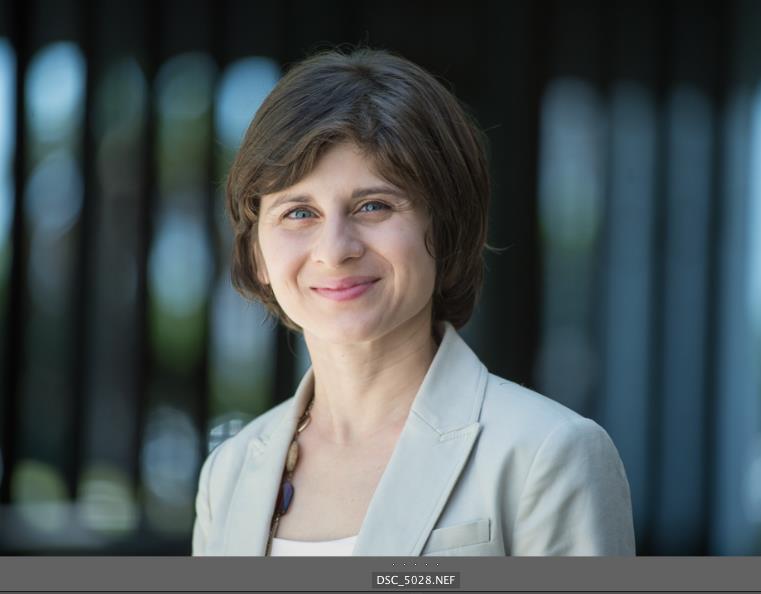

Senior Information Scientist, RAND Corporation
Nidhi Kalra is a senior information scientist at the RAND Corporation, professor at the Pardee RAND Graduate School, and codirector of RAND’s Center for Decision Making Under Uncertainty. She has led many projects on energy, environment, and science and technology policy. She recently completed a project to ensure long-term water security in Lima, Peru and is working to help the State of California make long-term investments in the Sacramento-San Juaquin Delta. She recently co-led a study providing policy guidance on autonomous vehicle technologies. In 2013, she served as a senior decision scientist in the Office of the Chief Economist of Sustainable Development at the World Bank. Her clients include the U.S. National Cooperative Highway Research Program, the State of California, the World Bank, the Government of Qatar, and the Department of Defense. Kalra has also developed educational technology tools to promote literacy among blind children in India. Kalra received her Ph.D. in robotics from Carnegie Mellon University’s Robotics Institute.


Head Automotive Solutions, Swiss Re Insurance Company
Sebastiaan started at Swiss Re in 2008. After working as a product developer, he joined the strategy team working for Swiss Re’s CEO in 2010. He was responsible for implementing a number of strategic concepts as well as executing organizational realignment programs. Currently Sebastiaan is Head of Automotive Solutions. As such, he is looking into developments with respect to automated vehicles and telematics, assessing their impact on the insurance sector and correspondingly shaping Swiss Re’s strategic actions. Sebastiaan holds a Master’s degree in Business Administration from the RSM Erasmus University in Rotterdam as well as a CEMS Master degree in Management.
Session 2.1: Adaptive risk governance in synthetic biology
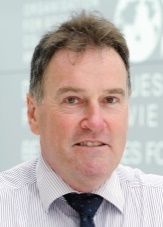

Policy Analyst, Organisation for Economic Co-operation and Development (OECD)
Jim Philp (PhD) is a microbiologist who has worked as a policy analyst since 2011 at the Organisation for Economic Cooperation and Development (OECD) in Paris, specialising in industrial biotechnology, synthetic biology and biomass sustainability. He has been an academic for about sixteen years researching environmental and industrial biotechnology: bioremediation, biosensors, wastewater science and engineering. He became involved with various UK government initiatives in biotechnology, such as Biotechnology Means Business, and BioWise. He was a coordinator of the LINK Bioremediation Programme, at the academic-industrial interface for about six years. In all he spent 8.5 years working for Saudi Aramco in Saudi Arabia as an oil biotechnologist, investigating field problems related to chemistry and microbiology, and developing biotechnology solutions for improved oil recovery and exploitation. He has authored over 300 articles. In 2015 he was inducted into Who’s Who. He was elected as a Fellow of the Royal Society of Chemistry in 2015.


Risk Assessor, National Institute of Public Health and the Environment, and European Commission Scientific Committee on Emerging and Newly Identified Health Risks
Theo Vermeire (1953), PhD, is a registered toxicologist. He studied (bio)chemistry and toxicology at the Universities of Utrecht and Wageningen in The Netherlands and obtained a PhD in risk assessment of chemicals at the University of Utrecht. He started his career in risk assessment as toxicologist at the Ministry of Housing, Physical Planning and the Environment. In 1987, he was employed by the National Institute for Public Health and the Environment (RIVM) and has served in a good number of scientific and managerial functions up to this day. His present position at RIVM is head of the Department of Nanotechnology, Occupational Health and Transport Safety of the RIVM Centre for the safety of Substances and Products. As an expert with a wide knowledge on toxicology and risk assessment, he has been involved in many expert groups developing guidance and tools for risk assessment (e.g. for IPCS/WHO, EU, OECD. EEA) and in a substantial number of training courses in this area in and outside Europe. He is a member of the Steering Group of the WHO/IPCS Network of Risk Assessment Institutes and the Scientific Committee on Emerging and Newly Identified Health Risks (SCENIHR) of the European Commission.


CEO & Founder, Evolva
Neil co-founded Evolva in 2004. He has been a member of the Board of Directors and CEO of Evolva SA since its foundation and of Evolva Holding SA since 2009. Neil has a 27-year entrepreneurial track record in building successful biotech companies. He was a co-founder of Topotarget A/S (listed in Copenhagen, merged with BioAlliance Pharma in 2014 to become Onxeo) and Personal Chemistry AB (now called Biotage AB, listed on the Stockholm exchange). Prior to that, he was Chief Executive Officer of Auda Pharmaceuticals (acquired by Phytera, Inc.), GX Biosystems and PNA Diagnostics (acquired by Boehringer Mannheim). Previously, he was Vice-President Business Development for Pharmacia Biosensor (later BIAcore AB) and a Board member of Quadrant Healthcare. He started his career in biotech at Scientific Generics in Cambridge, UK, after a short spell in consumer marketing. From 1981 to 1984, he attended Balliol College, University of Oxford, receiving a first class honours degree in Zoology, and is a graduate of the New Enterprise programme at the Scottish Enterprise Foundation, University of Stirling. Neil is on the board of the Biotechnology Industry Organization (“BIO”) and its section “Industrial and Environmental”.


Professor of Biomedical Systems Engineering, Imperial College; Chairman of the Institute of Systems and Synthetic Biology; Co-Director of the EPSRC National Centre for Synthetic Biology and Innovation
Kitney is Professor of Biomedical Systems Engineering; Chairman of the Institute of Systems and Synthetic Biology; and Co-Director of the EPSRC National Centre for Synthetic Biology and Innovation. He was Founding Head of the Department of Bioengineering, Dean of the Faculty of Engineering. He Chaired The Royal Academy of Engineering Inquiry into Synthetic Biology. Kitney is a member of the Ministerial Leadership Council for Synthetic Biology and was one of the main authors of the UK Roadmap for Synthetic Biology. Kitney is recognised as a leading research worker in the field of synthetic biology and, with Professor Paul Freemont, has been responsible for developing the Imperial College Hub for Synthetic Biology – which is now recognised as one of the leading international centres in the field. In 2013, they were successful in winning the national competition to establish the UK national industrial translation centre for synthetic biology – SynbiCITE. Kitney has published over 300 papers in the fields of synthetic biology, mathematical modelling, biomedical information systems, and medical imaging and has worked extensively in and with industry. Kitney was made a Fellow of the World Technology Network in 1999 for his innovative work in the fields of health and medicine. He was made an Academician of the International Academy of BioMedical Engineering in September 2003 (this is the highest honour bestowed by the International Federation of BioMedical Engineering Societies). He is also a Fellow of AIMBE, the America Academy of BioMedical Engineering. In 2006 he was made an Honorary Fellow of both The Royal College of Physicians and The Royal College of Surgeons.
Session 2.2: Adaptive risk governance in precision medicine
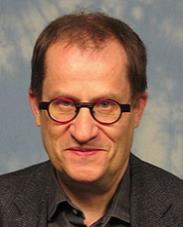

Senior Advisor to the President, École Polytechnique Fédérale de Lausanne; IRGC Scientific & Technical Council
Gérard Escher has a diploma in Biology from the University of Geneva, and a PhD from the University of Lausanne. He joined the Department of Neurobiology at Stanford University as a postdoctoral fellow. After his return to Switzerland (University of Lausanne), he led a research group on synapse formation. In 1999, he became scientific advisor to Secretary of State Charles Kleiber. He became assistant director at the State Secretariat for Education and Research in January 2005, in charge of science policy and forecast. In November 2008 he moved to the École Polytechnique Fédérale in Lausanne, where he acts as senior advisor to President Patrick Aebischer.


Professor and Dean, School of Public Policy and Management at Tsinghua University; IRGC Scientific & Technical Council
Dr. Lan Xue is a Cheung Kong Chair Professor and Dean of School of Public Policy and Management at Tsinghua University. He is also the Director of the China Institute for S&T Policy and a Deputy Director of the China Institute for Strategic Studies on Engineering and Technology Development. His teaching and research interests include public policy analysis and management, science and technology policy, and crisis management. He also serves as an adjunct professor at Carnegie Mellon University and a Non-Resident Senior Fellow of Brookings Institution. His many public service appointments include a member of the Expert Committee on Emergency Management of the State Council of China, Vice President of China Association of Public Administration, Vice Chairman of the National Steering Committee for MPA Education, a member of the Visiting Committee for Harvard Kennedy School, a member of the Academic Advisory Board for the Blavatnik School of Government at Oxford University, and a member of the OECD science, Technology and Innovation (STI) Advisory Group. He is a recipient of the Fudan Distinguished Contribution Award for Management Science. In 2012, he was invited to serve as the co-chair of the Leadership Council of the UN Sustainable Development Solution Network (UNSDSN).


SNSF Professor, School of Life Sciences, École Polytechnique Fédérale de Lausanne
Jacques Fellay is a medical scientist with expertise in genomics, infectious diseases and personalized health. He is SNSF Professor at the EPFL School of Life Sciences, a group leader at the Swiss Institute of Bioinformatics, and a visiting physician at the University Hospital in Lausanne, Switzerland. The main focus of his research is the identification and characterization of genetic factors modulating the human response to infections. He is the chairman of the International Collaboration for the Genomics of HIV, and of an NIH Commission on ethic in HIV genomic research. Jacques Fellay is also involved in the development innovative solutions for genomic privacy, an essential trust-building component on to road toward genomic-based medicine.


Senior Medical Officer, European Medicines Agency
Hans-Georg Eichler, M.D., M.Sc., is the Senior Medical Officer at the European Medicines Agency in London, United Kingdom, where he is responsible for coordinating activities between the Agency’s scientific committees and giving advice on scientific and public health issues. Prior to joining the European Medicines Agency, Dr. Eichler was at the Medical University of Vienna in Austria for 15 years. He was vice-rector for Research and International Relations since 2003, and professor and chair of the Department of Clinical Pharmacology since 1992. His other previous positions include president of the Vienna School of Clinical Research and co-chair of the Committee on Reimbursement of Drugs of the Austrian Social Security Association. His industry experience includes time spent at Ciba-Geigy Research Labs, U.K., and Outcomes Research at Merck & Co., in New Jersey. In 2011, Dr. Eichler was the Robert E. Wilhelm fellow at the Massachusetts Institute of Technology’s Center for International Studies, participating in a joint research project under the MIT’s NEWDIGS initiative. Dr. Eichler graduated with an M.D. from Vienna University Medical School and a Master of Science degree in Toxicology from the University of Surrey in Guildford, U.K. He trained in internal medicine and clinical pharmacology at the Vienna University Hospital as well as at Stanford University.
Session 2.3: Conclusion – Cross-cutting themes


Head of Emerging Risk Management, Swiss Re
Dr Reto Schneider is Head of Emerging Risk Management and responsible for early notions gathering and horizon scanning at Swiss Re. He joined Swiss Re in 1994, started as an underwriter for natural perils and headed the Risk Engineering Services Casualty team for more than 10 years. With his team he developed various methods and tools to conduct risk assessments and bench markings for the oil, chemical and life sciences industry. He holds a diploma in cell biology and a PhD from ETHZ.
Abstracts
Session 1.1: Introduction
Considerations in the design of adaptive policies
by M. Granger Morgan, Carnegie Mellon University and IRGC
While there is a strong case to be made that policies should be adaptive and should change as we learn more about physical processes and the behavior of regulated entities, designing such policies can pose a variety of challenges. In this brief overview talk Morgan will identify and discuss several alternative strategies that warrant consideration including: 1) the use of “red teams” to identify ways in which proposed regulatory strategies might be gamed by regulated entities before they are implemented; 2) periodic mandatory regulatory review and the use of sunset rules; and, 3) differentiating between broad policy frameworks and specific project or licensing and approvals. Particular attention will be devoted to the risk that once a policy is in place, interest and stakeholder groups may develop that can substantially complicate subsequent revisions.
What is planned adaptive regulation?
by Arthur Petersen, University College London and IRGC
The term ‘planned adaptive regulation’ suggests an ideal-type one-size-fits-all approach to regulation, in this case the regulation of a multitude of risks. The approach taken in this conference, however, is to look at practices to examine the day-to-day worldly encounters through which risks become known and regulated. Risk governance happens across multiple scales and situations; and conceptualisations and dealings with uncertainty vary among actors, depending on their specific operating practices. In making their decisions, actors are likely to employ a suite of more or less explicit ‘guiding principles’ that help to make decisions (appear) ‘adaptive’, ‘robust’, ‘resilient’, and/or ‘innovative’, and that offer a coordinating device in the governance of complex and uncertain problems. These guiding principles may – or may not – contain elements of ‘planned adaptation’: that is, not only aiming for being adaptive, but also for changes in regulation being planned, and not only responding to events and information as they arise, but planning for undertaking targeted research and data collection. Policy makers and regulators may learn from planned adaptive guiding principles that are in place in different areas of risk regulation.
What happens when regulation is not adaptive?
by Anne Glover, University of Aberdeen
Developing regulation at the European level tends to be a linear process involving broad consultation and extensive impact assessment. Evidence informs the process but does not necessarily dictate the outcome as many other factors are considered. To support business investment in new technology, regulation needs to be clearly defined but often the evidence underpinning the policy is not certain and may be continually evolving, especially in areas of new technology. The challenge is to develop an evidence-based process where uncertainty can be included in policy formation in a way that does not reduce the confidence of business who may wish to invest in novel technology.
Session 1.2: Adaptive Regulation – An overview of past and current experiences
Fuel-economy/carbon standards for motor vehicles
by John Graham, Indiana University and IRGC
In 2012 the U.S. federal government established ambitious regulatory targets for average passenger-vehicle fuel economy from 2016 through 2025. Those targets are seen as critical to both national climate and energy-security policy. As an illustration of planned adaptive regulation, the presentation shall explore the forthcoming 2017 “mid-term review” of the 2021-2025 fuel-economy standards, and how those standards may need to be adapted to an environment of low oil prices, much lower than was anticipated when the 2025 targets were set in 2012. A complication in the federal review is the increasing stringency of California’s Zero Emission Vehicle (ZEV) program from 2018 to 2025, despite growing evidence of consumer disinterest in the most prominent type of ZEV: the plug-in electric vehicle.
Planned adaptation in retrospect – Lessons from exemplary cases and cautionary tales
by Kenneth A. Oye, MIT and IRGC
Under conditions of uncertainty and complexity, the need for adaptive strategies of risk management is manifest. Yet the design and implementation of effective systems of planned adaptation is difficult. This presentation will:
- Look back at examples of successful adaptive policy systems, including EU Transmissible Spongiform Encephalopathies Programme, US National Transportation Safety Board and US National Ambient Air Quality Standards
- Look back at unsuccessful past nominally adaptive policy systems
- Extract general lessons from retrospective cases to inform deliberations on prospective applications.
Adaptive risk regulation and fracking in Europe
by David Reiner, University of Cambridge
Fracking in Europe is a particularly challenging case for implementing adaptive risk regulation. Any planned approach presumes at least some degree of social license to operate that would allow contingent regulation or even stakeholder engagement to be considered. Instead, even pilot projects or exploration wells are rebuffed out of fears that it will have a ‘camel’s nose’ effect. In countries that have banned fracking (or instituted a moratorium), such as France, Germany or Bulgaria, there is little room for flexibility or creative approaches. In the few European countries that have strong government support, notably the UK and Poland, there have been early efforts at regulatory design, which have tried to include elements of compensation and public engagement. The success of both systems has been mixed at best. Poland has, by far, the highest level of public support for fracking in the EU and has now gone through two rounds of regulation. The second round of regulation has tried to respond to perceived governance failures by offering firms a favourable system, but one which reduces the potential for stakeholder involvement. In the UK, unyielding government support for the nascent industry has led to minimal willingness to engage the public in a constructive fashion and derisory compensation offers.
Session 1.3: Adaptive flood risk governance
Dutch adaptive delta management
by Pieter Bloemen, Dutch Delta Commissioner
Adaptiveness requires freedom of movement, tailored agility, and informed alertness.
- Freedom of movement implies that there are options to choose from, both in the short and long term.
- Tailored agility demands decision making processes that target the appropriate scales of action in time and in space. Anticipating predictable trends needs other processes than reacting to unexpected events. And up-dating nationwide safety standards needs other processes than rescheduling local implementation programmes.
- Informed alertness requires both an open attitude to changing conditions and a coherent system for monitoring and evaluating developments.
In the Dutch Delta Programme on safety against flooding and on fresh water supply the method of Adaptive Delta Management (ADM) was developed and applied. Elements of this method are connecting short-term decisions in the broad physical domain (land use planning, water management, housing, shipping, nature, recreation etc.) with long-term tasks in the specific domains of safety against flooding and freshwater supply, and working with multiple adaptation pathways. A critical reflection was performed on the degree in which the three above mentioned conditions for adaptiveness are met in the Dutch Delta Programme. The presentation will briefly describe the method of ADM and will present the results of the reflection.
Informing adaptive management – Innovations and challenges
by Robert Lempert, RAND Corporation
As theory and practice make clear, the best response to deeply uncertain conditions is often to pursue strategies that are robust and adaptive. But policy flexibility and experimentation can often conflict with the need for accountable, objective, and predictable governance. To address these challenges, decision support analytics can help decision makers lay out well-articulated contingency plans, along with a clear understanding of the limits of these plans. This talk will describe example applications and discuss institutional and other implementation challenges.
Adapting to scientific information – An insurance perspective
by Trevor Maynard, Lloyd’s
Hurricane Andrew in 1992 led to a number of insurer insolvencies and brought in a new era of catastrophe modelling. Scientific methods proved better than assumptions of claims stationarity and were finally accepted by insurers. Notably although Hurricane Katrina caused widespread wind and flood related claims payments (USD80bn) there were very few insolvencies due in large part to the capital buffers set up using modelling insights. Despite this, there was much to learn from Katrina and models came under scrutiny, some fair and some unfair. Two key developments following Katrina will be discussed. Atmospheric and oceanic forecasts are becoming more skilful yet joint work between Lloyd’s and the Met Office demonstrated they must be used cautiously – the findings from this work will be discussed. Lloyd’s UK Flood Realistic Disaster Scenario will be presented and finally, learning from Lloyd’s Emerging Risks analysis, some observed barriers to adoption into business decisions will be explored.
Session 1.4: Adaptive regulation for the development of autonomous car markets
Adaptive approaches to vehicle regulation
by Walter Nissler, United Nations Economic Commission for Europe (UNECE)
The UN World Forum for Harmonization of Vehicle Regulations is the world-wide unique body that establishes international legal instruments that govern the approval or certification processes for vehicles and their parts and components as a prerequisite to allow their use on public roads based on international conventions, 1958 Agreement on type approval for vehicles, parts and components and the 1998 Agreement establishing Global Technical Regulations for vehicles, parts and components. These UN vehicle regulations are based on the principle of performance orientation avoiding as much as possible design restrictions. To follow technical progress, they are regularly amended.
The latest technical developments towards the introduction of automated or even autonomous vehicles challenge the regulatory system at international level. Issues that require attention include: technical issues (such as those that are currently discussed on areas like ‘highway-autopilots’ or ‘valet-parking’, where a top-down approach is used to minimize the risk of missing important elements), legacy elements (such as necessary changes to traffic regulations like the recent amendments to the 1968 Vienna Convention on Road Traffic), liability issues, and questions of data privacy and cyber-security.
Harmonization is crucial for a global market. Open questions remain, such as whether and when regulation is needed and level of depth into which regulations should go. However, regulators should always seek for enhancement of safety for road users and avoiding unfair competition in the automotive industry.
Views from the UK regulator
by Ian Yarnold, International Vehicle Standards Division, UK Department for Transport
This presentation will provide an overview of the UK regulatory landscape for autonomous vehicles and the Department for Transport’s plans following the Publication of their ‘Review of Regulations’ and ‘Code of Practice’ during 2015. He will also make reference to the work of the UNECE where many of the vehicle standards are developed and where Mr Yarnold co-chairs the ITS- Automated Driving group.
Informing regulations for autonomous vehicle technologies
by Nidhi Kalra, RAND Corporation
Autonomous vehicles have long been a staple of science fiction and Hollywood. In the coming decades, they may become a staple of our everyday lives, with potentially transformative effects. Managing their risks and maximizing their benefits requires carefully designed governance and regulation. For example, how safe should autonomous vehicles be before they are allowed on the roads, and how do we prove they are safe? Some will insist that anything short of totally eliminating risk is a safety compromise. But waiting for autonomous vehicles to be perfect itself raises safety concerns, because it would mean the needless perpetuation of the well-documented risks posed by human drivers. Technological uncertainty, public acceptance, and a host of other factors make it difficult to develop sound governance around this potentially disruptive technology. In this talk, Nidhi Kalra will explore several questions. What are the risks and benefits surrounding autonomous vehicles and the regulatory options for introducing them into the market? What deep uncertainties make it so difficult to develop appropriate regulation? What opportunities does adaptive regulation hold for governing this technology and what might it look like? She will offer ideas of how we could use adaptive regulation for autonomous vehicles. Finally, she will suggest opportunities for additional research and future work.
Insurance perspective on automated vehicles
by Sebastiaan Bongers, Swiss Re
Motor accounts for approximately 42% of the total global primary Property & Casualty market and is one of the most important lines of business for insurance companies. Motor insurance is undergoing a transformation as new technologies give rise to new business models, such as telematics. Furthermore, automated vehicles have the potential to significantly reduce the number of accidents. In the long run, the amount of risk and therefore the need for personal line motor insurance will decrease and product liability covers will become more important. Currently, insurers have different approaches to tackle this transition phase towards the fully self-driving car. Besides thinking about the liability aspects and policy wordings, insurers will have to build capabilities to assess the automated features in new cars in order to be able to price risks accordingly. Swiss Re developed several projections to get a better understanding of the important factors influencing auto insurance over the next two decades which will be discussed in this presentation. Furthermore, an outlook on opportunities and threats for motor insurers in this time of disruptive change will be made.
Session 2.1: Adaptive risk governance in synthetic biology
Introduction
by Jim Philp, OECD
Everyone says we need a new regulatory regime for bio-based production, but there is very little about what it might look like. The US focuses on the need to streamline the many agencies involved. The EU has more complex issues around the acceptability of genetic modification, but it is not clear to what extent this is an issue in industrial-scale contained use applications. The introduction to the session will also ask if standardised tests for biocontainment are suitable for regulatory requirements.
Synthetic biology: Emerging applications and regulatory challenges
by Kenneth A. Oye, MIT and IRGC
Generalizations on benefits and risks associated with ‘synthetic biology’ should be replaced by concrete analysis of specific applications. This talk will summarize several current and impending applications of synthetic biology with distinctive benefit/risk profiles, discuss technical safeguards that may limit potential environmental and security risks and flag regulatory challenges associated with certification of safeguards and management of risks. The applications and technical safeguards will fall into the following areas:
- Synthesis of high value products (drugs and flavors) in tightly contained settings
- Synthesis of low value products in semi-contained settings
- GM agricultural crops and livestock
- Gene drives to propagate genetic modifications in wild populations
Technical safeguards summarized will include methods of intrinsic containment, including nutrient dependency and codon knockouts, immunization drives and reversal drives.
Scientific opinions on synthetic biology in the EU
by Theo Vermeire, Dutch National Institute of Public Health and the Environment (RIVM) and EC SCENIHR
The field of Synthetic Biology (SynBio) is full of exciting possibilities, from adapting crops to thrive in barren lands to growing new organs to save the lives of transplant recipients. As an unexplored scientific territory, SynBio also poses potential risks and there is inherent uncertainty regarding these risks. That is why a Working Group under the three non-food Scientific Committees of the European Commission, the Scientific Committee on new and Emerging Health Risks (SCENIHR), the Scientific Committee on Health and Environmental Risks (SCHER) and the Scientific Committee on Consumer Safety (SCCS) recently answered 11 questions on Synthetic Biology (SynBio) from DG SANTÉ, DG RTD, DG GROW and DG Environment. Three Opinions were published and these will be presented. The first Opinion (September 2014) discusses the elements of an operational definition for SynBio and its scope. The two Opinions that followed in 2015 focus on risk assessment methodology, safety aspects, specific risks for the environment, knowledge gaps and research priorities.
The presentation will also suggest ideas regarding the widely discussed risk governance of an emergent technology like Synthetic Biology. Emerging technologies increasingly seem to give rise to questions about the safety of their products alongside questions on socio-economic issues, including ethical issues. When fundamental uncertainty exists on the risks and insights in (new) safety aspects are lagging behind the development of new technologies, appropriate legislation cannot be developed timely, public perceptions may be less favourable and innovation may slow down. This requires new approaches towards risk governance and some of these will be discussed.
Views from industry
by Neil Goldsmith, Evolva
Evolva combines modern biotechnology and traditional fermentation to produce ingredients with supply chain “issues”. We are brewers for the 21st century. Approaches such as ours offer major benefits in terms of better, more healthy ingredients for people around the world, produced in a safer and more affordable manner, with a lower ecological footprint than what has come before. Evolva’s ingredients can help individuals reduce the amount of sugar in their food, protect their families from disease transmitting insects and improve the health and wellbeing of themselves and their pets.
Over the last few decades, society has put in place extensive regulations regarding both biotechnological processes and the products (medicines, food, household goods, fuels, crops) that such processes can impact and improve. These regulations are not just passive, however, but themselves actively shape the flow of how (and which) technologies develop. Whilst crafted with positive intent, such regulations, especially those that emerge as the result of complex political processes, may also have perverse effects. For example, the Convention on Biological Diversity was designed (in part) to promote the sustainable exploitation of biodiversity, but has instead played a part in getting the pharmaceutical industry to adopt alternate technological methods for generating new medicines, resulting in them largely abandoning biodiversity as a source, in turn reducing (at least in commercial terms) the value of biodiversity.
As new biological technologies continue to come through, it is important to update existing regulatory frameworks. However, such updates must not only seek to reduce risk, they must also seek to capture the benefits of innovation, and to avoid perverse effects. This is becoming ever trickier, given that the rate of technological change is exponentially increasing, whilst the rate of regulatory change is not. As such, the risk that regulations are not adapting, or are adapted poorly, increases.
Session 2.2: Adaptive risk governance in precision medicine
Introduction to the revolution of precision medicine
by Gérard Escher, EPFL and IRGC
The introduction to this session will reflect on learnings from an exploratory workshop on adaptive governance of opportunities and risks of precision medicine. Precision medicine results from the digital and the genomic revolutions, which announce a new patient-centric and data-intensive medicine that will transform research, clinical trials, informed consent, liability, privacy, and health insurance. But to meet the promises, more data need to be collected, medical doctors need to be trained and theory and technology must align. An adaptive regulatory framework for responsible sharing of medical and health-related data and for protecting patient rights is necessary. Countries in Europe and elsewhere are embarking on ambitious policy initiatives and research programmes.
Precision medicine – An overview of changing technologies and regulatory challenges
by Kenneth A. Oye, MIT and IRGC
This presentation will provide an overview on technical and policy issues associated with the development and regulation of precision medicines. Issues treated will include characterization of degrees of uncertainty over benefits and risks associated with conventional and unconventional precision medicines, challenges to risk governance that are associated with ever smaller treatment groups, problems with data ownership and access, and European EMA, US FDA and Japanese PMDA regulatory innovations designed to meet challenges.
Governance debate and policy agenda – The situation in China
by Lan Xue, Tsinghua University and IRGC
The development of precision medicine is defined by powerful actors with established objectives and concerns, and that structure the governance debate and policy agenda. The presentation will discuss respective objectives and concerns of the scientific community, which is currently driven and/or concerned by data access, of government and society, motivated by data privacy and security, of ELSi committees, motivated by ethical issues, and of government & industry, driven by economic opportunities. China is an important player in genomic research and technology, with anticipated application in precision medicine.
Genomic research and precision medicine
by Jacque Fellay, EPFL
Rules and regulations governing research and clinical activities have historically been very distinct. In today’s post-genomic era, every patient – or healthy individual – can be seen as a potential research participant, whose data could contribute to an accelerated pace of scientific discoveries. Open access and citizen science movements are powerful forces that are reshaping the biomedical research enterprise, but their current lack of regulatory content is problematic when dealing with private health data from the general population. I will describe the promises and pitfalls of the upcoming confluence between laboratory and clinical genomics, from the perspective of a medical doctor active in human genomic research.
Background
About planning adaptive risk regulation
Download a short introduction to Planned Adaptive Risk Regulation (pdf)
How can law and regulation keep up with technological developments?
Regulation of risk in sectors marked by rapid advances in science and technology can often not rely on full scientific assessment of risk. It needs to rely on projections of safety, efficacy, and acceptable quality, with revisions as new knowledge becomes available. In other fields where context conditions change rapidly, a continuous re-evaluation of risk is often needed.
This calls for flexible and adaptive risk regulation.
The inflexibility of regulation, which may create lock-ins, can be a serious impediment to innovation. Regulatory initiatives to foster innovation while improving use of pre-market and post-market information are the focus of attention by regulators, industry and NGOs alike. Some are particularly focused on developing more adaptive and discriminatory approaches to the management of risks and uncertainty during the development and learning phase. This is the case for pharmaceuticals, for applications from synthetic biology, or in regulatory regimes for hydraulic fracturing to develop oil or gas resources from unconventional reservoirs, in uncertain geological conditions.
How can regulated parties cope with flexibility and adaptability in regulatory frameworks?
In the field of new technologies, for example, it is essential to address potential emerging risks without discouraging healthy risk taking and stifling innovative activities. The development of regulatory environments that provide stability, in addition to flexibility and adaptability is much needed. However, when revisions are embedded in regulatory and licencing frameworks, industry may suffer from a climate of instability. Some form of certainty must be guaranteed to investors and operators.
This calls for planning the flexibility embedded in regulation.
One way to do this is by involving the regulated parties in targeted government-sponsored research into emerging risks, which may lead to cutting edge knowledge becoming available and less surprises about regulatory decision-making but also requires ways to guarantee independence of the research.
Definition
The term “planned adaptation” refers to the design of institutions and processes to update policies in light of evolving scientific knowledge and changing economic, social and political conditions. Our use of the term is reserved for cases where [a] there is a prior commitment to subject an existing policy to de novo re-evaluation and [b] systematic effort is made to mobilize new factual information for use when the re-evaluation takes place.
This is in contrast to when regulation simply needs to be revised: Planned adaptation includes feedback and learning processes that are not necessarily built in conventional processes for regulation. Planned regulation can be considered when risk management needs to be anticipatory in order to align management to emerging threats: Flexibility can be built in regulation to adapt to new knowledge.
Organisers
Organising Parties
International Risk Governance Council (IRGC)
RGC is a non-profit and independent foundation whose purpose is to help improve the understanding and governance of systemic risks that have impacts on human health and safety, on the environment, on the economy and on society at large.
Department of Science, Technology, Engineering and Public Policy at University College London (UCL STEaPP)
The purpose of UCL STEaPP is to explore, experiment with, and improve the ways scientific and engineering expertise and knowledge are engaged with public decision-making and policy processes across all levels, sectors and cultures of our now globally interdependent societies.
Conference Scientific Committee
Arthur Petersen, Professor of Science, Technology and Public Policy, Department of Science, Technology, Engineering and Public Policy, University College London (UCL STEaPP), UK; IRGC
Kenneth Oye, Professor of Political Science and Engineering Systems, Massachusetts Institute of Technology, USA; IRGC
Jonathan Wiener, William R. and Thomas L. Perkins Professor of Law, Duke Law School;
Professor of Environmental Policy; Professor of Public Policy, Duke University, USA; IRGC
IRGC Sponsors
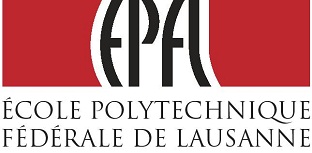

![]()
![]()


![]()
![]()
Contact
Should you have any questions or require additional information about this event, please contact:
Marcel Bürkler (IRGC), marcel.burkler@irgc.org, +41 21 693 8290


